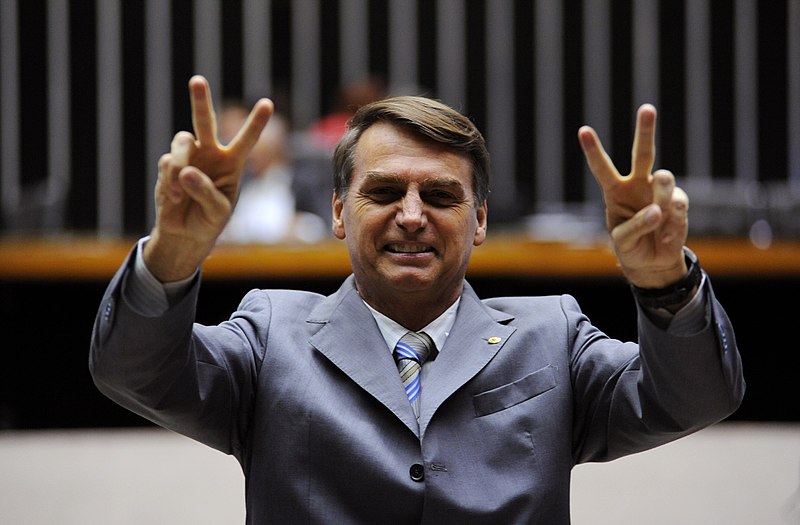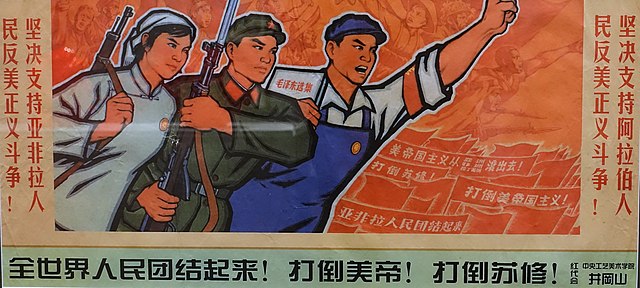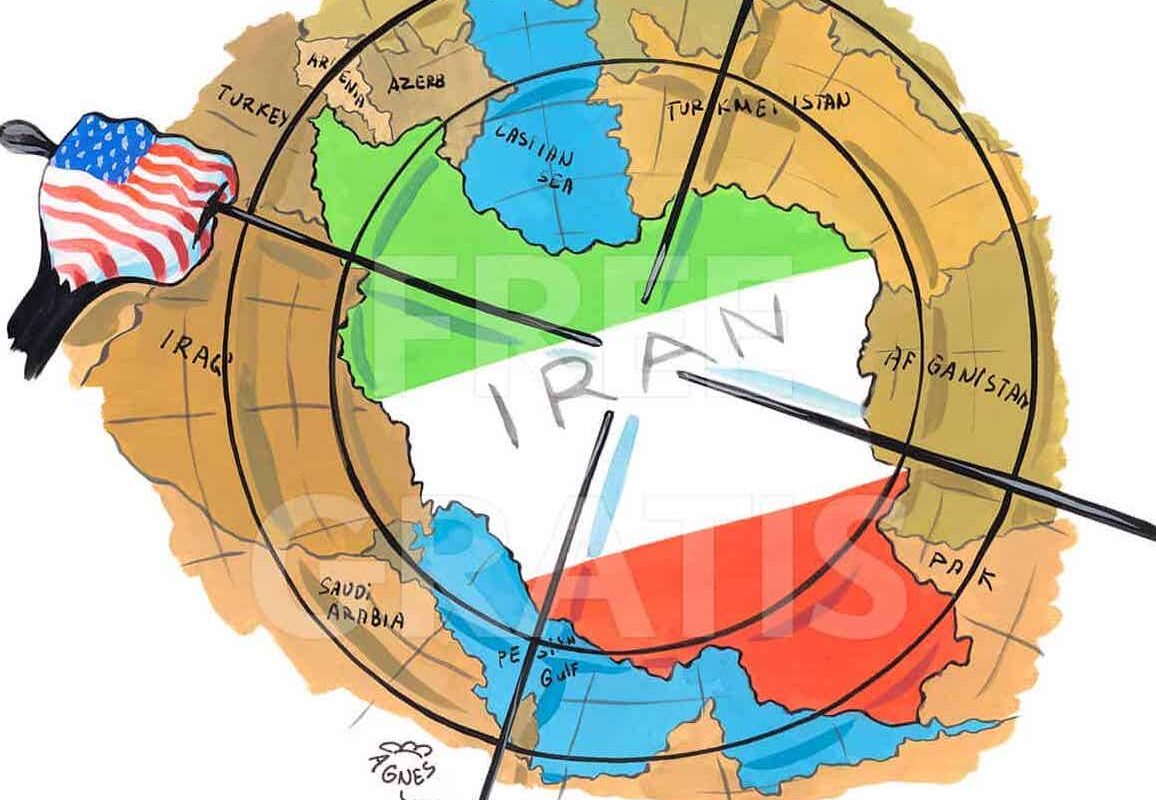Following his article on the run-up to the elections, Bernardo Jurema looks at the potentials and limitations of a possible Lula victory. While winning a majority (48%) presidential candidate Lula has failed to gain 50% of the votes, and will have to face incumbent president Bolsonaro in a second round run-off at the end of October.
Lula and the indigenous movement
The indigenous movement has been the one social sector that has managed to extract some sort of commitment from Lula. In April, during an event at the indigenous gathering Acampamento Terra Livre (Free Land Camp), Lula promised to create a Ministry of Indigenous Peoples and revoke all the measures taken by President Bolsonaro against native peoples. That’s a welcome sign, and one of the very few concrete pledges made by former president Lula. It is also a demonstration of the strength of indigenous mobilization.
But as indigenous leader and thinker Aílton Krenak recalled in a recent interview, Marina Silva resigned as Lula’s Minister of the Environment because she firmly opposed the government’s push to “develop” the Amazon. Under Lula’s presidency between 2003-2010, hydroelectric dams such as Balbina, Belo Monte, Santo Antônio and Jirau, and other agribusiness and mining projects were greenlit, to the detriment of the forest and its inhabitants. Unfortunately, this was the approach that prevailed with Lula’s Worker’s Party (PT) in power, and continued, on steroids, after it was kicked out of power by those very sectors that benefited – and grew – under its tenure.
In another interview, Krenak acknowledges that there was some progress under the PT governments – “Something in the area of education, creation of more infrastructure in the indigenous territories, university places, recognition of cultural diversity. But these are things that only mitigate our drama.” He added, “The problem with our cause is that it doesn’t have a definitive solution. We have to fight for our rights all the time, because they are constantly being attacked. When the attack doesn’t come from the State, it comes from agribusiness. We are beaten by the left and the right. During the decade of Lula/Dilma governments 253 indigenous leaders were assassinated. We continue resisting, but also dying like bees. And two hundred dead people don’t make headlines. We want what is in the Constitution and should have been done by 1993: the demarcation of our lands.”
Raoni Metuktire, the kayapó leader, who is thought to be around 90 years old, led the opposition to the construction of the Belo Monte hydroelectric dam on the Xingu River. His people have opposed this project since its inception during the civil-military dictatorship that ruled Brazil between 1964 and 1985. It was under the PT government that the dam was built.
Raoni said: “[Lula] started planning this idea of raising Belo Monte. We managed to stop the construction, but it was restarted with the Dilma government. Our fight against Bolsonaro is the same as the one we had against Lula and Dilma. All of them – Lula, Dilma, Bolsonaro – generated this division between the Indians and the government. That’s why I’ve been fighting for there not to be this division.” The indigenous movement was able to extract a rare commitment from Lula not by uncritically adhering to his campaign. It is unfortunate that more sectors have not done the same.
Lack of political imagination on the left
Of course, the indigenous struggles go much beyond specific demands. It is worth quoting Krenak at length here: “The planet, this living organism on Earth, is not a warehouse. And the logic of governments, unfortunately, goes in this direction. Rethinking all this requires a huge mobilisation of different layers of reality – the economic, political, educational, technological, infrastructure idea. […] If we consider that we can deepen the debate in Brazil about the re-founding of Brazil, then we would have the possibility of articulating with Latin America, in a perspective of the new Latin American constitutionalism, that conceives the idea of a plurinational state. Because this colonial state -it doesn’t admit it- but because it is colonial, its DNA is that of a pirate, of a bandeirante [a settler-colonialist], that came to eat others, to steal from others. So if we don’t re-found, it is no use changing the government… we have to question the Brazilian colonial state. I am amazed that most of the political leaders that are in the debate are so alienated that they don’t realise that if we don’t change this broad cultural matrix, we will only reproduce the disaster, including from the environmental point of view.”
This lack of political imagination in Brazil’s left is at the root of much of the current woes that the country faces. As Brazialian philosopher Rodrigo Nunes has eloquently put it: “What should be criticised in the PT governments, it seems to me, is not the fact that they did not correspond to some ideal of what a leftist government should be, but the absence of a strategy so that the changes they introduced would feed back, reinforce themselves over time, take root, and create the conditions for more ambitious changes in the future. This becomes clear when we compare the ease with which the advances of the last decade are being reversed with the long historical continuity of the Vargas era. The project had feet of clay, in that it depended on conditions (mainly the win-win allowed by the commodities boom) that could not last forever, and it did not prepare for when these would end.”
“What one should criticise is not pragmatism per se, but a narrow pragmatism that says “one must do what is possible” without understanding that the “possible” is not a fixed quantity, but precisely the object of a transformative politics. The struggle is always to modify the possible, that is, to enlarge the sphere of possible transformations. If you don’t do this, you are left to luck: when conditions change, your strategy becomes unworkable. It is obvious that nobody can afford to simply ignore Realpolitik; but it is not given that Realpolitik can only be cynical, narrow-minded, dumb. It can also be invested with desire and ambition for transformation.”
What does a Lula win mean for European leftists?
It is clear that Lula’s victory over Bolsonaro is desirable. But leftists, in Brazil and abroad, should remain vigilant and pressure Lula towards the left. It is true that in certain aspects, the new government will be better and more progressive than the current far-right government. But it’s complicated. Take the war in Ukraine. In not taking sides and staying neutral, Lula’s stance is not substantially different from that of Bolsonaro. That’s because the latter, after taking an unabashedly pro-U.S. line under his disgraced former foreign minister Ernesto Araújo, has shifted back to Brazil’s long-standing foreign policy tradition of non-alignment.
Celso Amorim, who was hailed as “the world’s best foreign minister” by the Democratic establishment-aligned Foreign Policy magazine when he headed Brazil’s diplomacy under Lula, recently said in an interview: “you only end war in two ways: a total surrender, as in the case of World War II, or by negotiation, which can come from fatigue and various factors. But by negotiation you need both sides to make concessions”. In fact, that’s a position that is largely in sync with large swaths of the Global South. Amorim is currently Lula’s main foreign policy advisor. We can expect to see Brazil take a more assertive role in international affairs, and that is a welcome development for anti-imperialists and internationalists in general.
But there will be moments when the Global North left will have a role to play. The EU-Mercosur trade deal, for example, “represents a neoliberal trade model, which perpetuates neo-colonial patterns and increases the economic and political power of big corporations at the expense of human rights, the environment and people’s health” and “would increase inequalities, worsen precarious working conditions, land concentration and disregard for indigenous rights, disrupt local food production and increase the use of pesticides in Mercosur countries – with knock on effects for EU food safety”. The deal has not been closed because the EU has decided not to sign it as long as Bolsonaro leads Brazil. This could change after the election in October, but it should be strongly opposed by the European left.
Conclusion
Lula’s foreign policy can serve as a synthesis to shed light on the potentials and limitations of Lulismo. Evident achievements (WTO, FAO, relevant geopolitical actor in multilateral negotiations, Brazil-Iran-Turkey Agreement) managed to transform the balance of power (something not even attempted at the domestic level) in a creative and intelligent way, building coalitions, trying to change the agenda of the international public debate and maintaining a coherent practice and discourse emphasising multilateralism and mutual respect.
On the other hand, domestic “accommodation” – “respect” for the rules of the game – led to the cosy relationship between PT and contractors, who were taken along on presidential trips, especially to Latin America and Africa. Thanks to the Lava Jato investigations and its derivatives across Latin America, today we know exactly the extent of what happened (even if it was politically weaponized). This compromised and jeopardized the undeniable advances that occurred in the same government. This is the complexity of the Lula government. It is not only that both aspects have occurred, but that the second one has put the first one in jeopardy.
Yes, it is important to defeat Bolsonaro. Bolsonarismo, and the conditions that led to its emergence, also need to be, if not defeated – that is a tall order, after all – at the very least tackled. Automatic adhesion to Lula by the Brazilian left and social movements may lead to an electoral victory, but it most certainly won’t lead to a political one. On top of that, it is important to face the challenges presented by the climate emergency and Lula’s platform falls well short of what the moment requires.
The reactionary forces – the agribusiness sector, the financial sectors, the military, the evangelical churches, and so on – have been pressuring and will continue to pressure Lula to meet their demands. It is crucial that the left in Brazil steps up and starts to exert pressure as well. The international left must tread a fine line and support the Lula government whenever it faces imperialist attacks, but ultimately the allegiance should be with the people of Brazil and not with any one particular individual or political party.
Ultimately, international solidarity for those of us leftists in the Global North means pressuring our own governments to take decisions that lift the constraints for emancipatory policies to be carried out in the Global South.




